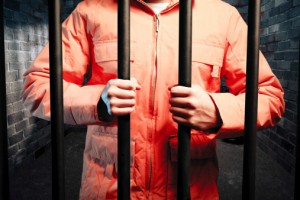
On Tuesday, September 1, a California court ended the widespread practice that has kept hundreds of Californian inmate in segregation units for years—some even for decades. Prisoners will no longer be restricted to soundproofed, windowless cells indefinitely, but they will be allowed to participate in the same routine as the other inmates.
Now only people who have committed actual crimes while in prison will be segregated from other prisoners.
Small, essential steps lead up to this momentous decision
Many prisoners have gone on hunger strikes during the past few years to protest the practice of unlimited solitary confinement for gang leaders. Even President Barack Obama and US Supreme Court Justice Anthony Kennedy spoke out against the practice this summer.
Hopeless situations of the past
It’s likely that some people have even been falsely accused of being gang leaders, and have been isolated from others for completely invalid reasons. Perhaps some have just gotten on a prison guard’s bad side and ended up being thrown into solitary confinement, with no hope of ever getting out.
Now that practice is ending, reported Yahoo News on Tuesday.
How it all began
A lawsuit that began in 2012 originated from two prisoners—Todd Ashker and Danny Troxell, who were serving time at Pelican Bay at the time prompted this policy change. They explained that isolating that isolating inmates in 80-square-foot-cells for all but 90 minutes per day should be considered cruel and unusual punishment, which is unconstitutional.
Direct impact on the inmates
Recent other policy changes have already decreased the number of prisoners who have been in solitary confinement for over a decade from around 500 to around 60. But about 3,000 inmates are currently held in segregation units, half of which are in solitary confinement, where their contact with others is extremely limited.
Those who refuse to attend rehabilitation programs or follow prison rules will be placed in restrictive custody, but the amount of time they will spend in isolation will now be limited. Those who might be in danger if they live with other inmates will also be given special protections.
Now inmates will be still segregated for up to 5 years for crimes committed while in prison, though gang members may be held in segregation for another 2 years.
The reaction
Prisoners and their friends and family members are understandably thrilled in light of this news. Lawmakers and many others are realizing that the widespread practice of unlimited solitary confinement and segregation of gang members is not only unproductive—it’s completely inhumane. This is another incredibly important step in California’s effort to improve its prisons, stop overcrowding, save billions of dollars, and increase fairness and reasonable practice all around the state.
What to do if you or a loved one could be affected by this court ruling
If you or someone you know has been kept in solitary confinement or segregation because of gang affiliations (either true or untrue), you can petition the California court system to apply this ruling to you or your loved one’s situation now. Call Dan Chambers for a free initial consultation, and he will meet with you personally to discuss your situation and give you expert legal advice on the spot. He is Southern California’s best criminal defense attorney, and he will do everything in his power to make sure you or your loved one gets and stays out of solitary confinement.
Call 714-760-4088, email dchambers@clfca.com, or use the chat box at the bottom right of this page to set up a free appointment today.




